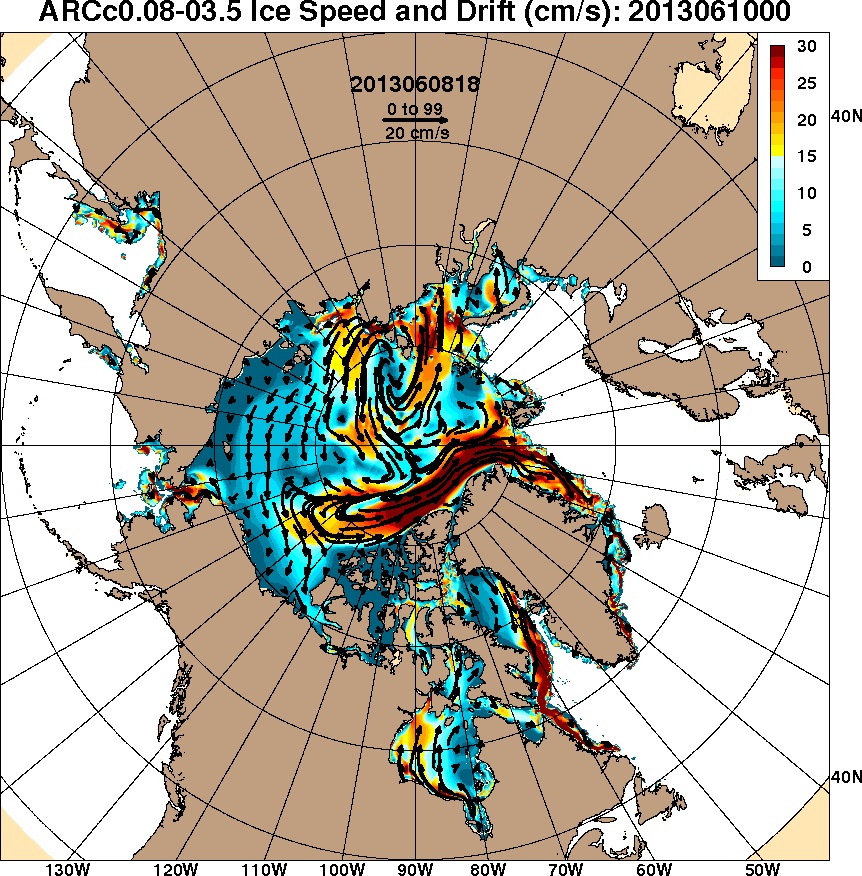Paul Beckwith, a doctoral student in climatology at the University of Ottawa, has recently written an article for the Sierra Club of Canada, predicting that by the end of the summer Arctic sea ice will have vanished. According to Beckwith, this is remarkable in that it will be the first time in human history such an event will have occurred. Beckwith’s prediction is based on a new set of data released by a U.S. Navy satellite, containing measurements of sea ice thickness. Over the past two years, cyclones and their associated winds have ravaged the sea ice reducing its volume by 20% last year; in the last two weeks storm activity has reduced sea sea ice thickness from 2.5 metres thick to just 1.25 metres near the centre of the cyclone. Beckwith reports that although cyclones are not unusual, their “amplitude, frequency and duration” is new, as is their destructive abilities.
Not all models are predicting an ice-free Arctic so soon; the mainstream scientific consensus is still that we have until 2050 before Beckwith’s predictions come true. However Beckwith’s claims are supported by the Pan-Arctic Ice Ocean Modeling and Assimilation System (PIOMAS), which predicts 2015 or 2016 will be the first year of an ice-free Arctic. It seems the take-away message here is that new data has the ability to challenge existing climate models, making another strong case for taking immediate action on climate change in order to prevent large-scale environmental change.

Source - http://tinyurl.com/ARCc-10